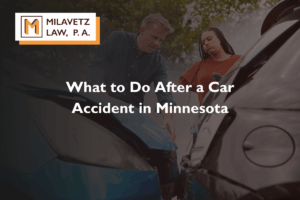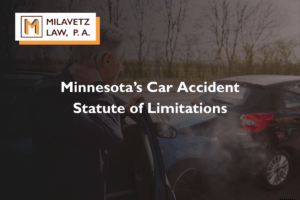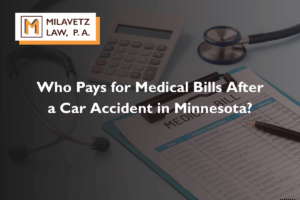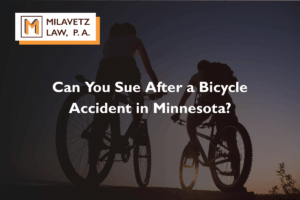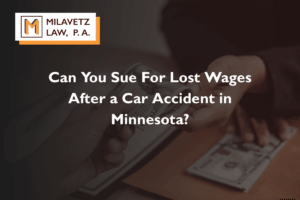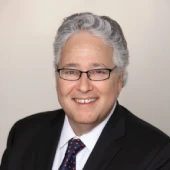When you experience a car accident, you must follow specific steps to comply with the law, preserve the health and safety of everyone involved, and safeguard your personal injury case.
If you are injured, you may be eligible to seek significant compensation, but insurance companies are not always willing to pay the amount you deserve. They may put you under a microscope to find mistakes they can use against you.
To maximize compensation after a car accident, you must minimize what you say to the other party or their representatives and contact a Minnesota car accident attorney as soon as possible.
At the Scene of the Car Accident
It can be difficult to think clearly during a crash’s aftermath, but unfortunately, your words and actions at this time can work against you. Knowing what to do beforehand can help you avoid common mistakes that could jeopardize your physical and financial recoveries.
Remain at the Scene
Leaving the scene of an accident in Minnesota is a crime punishable by thousands of dollars in fines and incarceration, according to Minnesota Statutes § 169.09. It becomes a felony if the collision results in death or great bodily harm, defined by Minnesota law as permanently disabling or disfiguring injuries or those likely to result in death.
Leaving the scene of an accident that resulted in “substantial bodily harm” or property damage is a misdemeanor. Substantial bodily harm includes broken bones and serious but temporary disfigurement or loss of function.
In any collision, you must stop at the scene and investigate. If the crash resulted in property damage, bodily injury, or death, you must remain at the scene long enough to meet the following requirements of the law:
- Check all other parties for injuries
- Report the accident to law enforcement
- Exchange information
Check for Injuries
Your first step after you have pulled over is to check yourself and others for injuries. If you have reason to believe you are injured, do not move. Some injuries are not immediately apparent, and if you have a spinal cord injury, even slight movements can cause permanent paralysis that could have been prevented, according to the Merck Manual.
If anyone is injured, call 911 and dispatch emergency medical services. If you can safely move, the law requires you to provide reasonable assistance to other individuals injured in the collision. Reasonable assistance may include the following:
- Providing cardiopulmonary resuscitation if you are certified
- Moving a vehicle out of traffic
- Calling 911
- Helping individuals move to safety
- Talking to individuals to help them stay awake until help arrives
Do not move an injured person unless necessary to protect their safety.
Report the Accident
Minnesota law requires that you report accidents to law enforcement by the fastest means possible. You must report collisions within city limits to the police department. Collisions outside city limits should be reported to a state patrol officer. You can usually accomplish this by calling 911.
Exchange Information with the Other Driver
State law requires you to provide the following information to the other driver:
- Name
- Date of birth
- Mailing or email address
- The registration plate number of the vehicle you are driving
- The name and address of your insurance company
Make sure you receive this information from the other driver as well. Exchange this information at the scene, if possible. The law requires the exchange of insurance information within 72 hours of the accident.
You can be charged with a misdemeanor if you leave the scene without providing all the required information. The law makes an exception if you leave to assist an individual with receiving emergency medical care as long as the accident is reported to law enforcement as soon as possible.
Gather Witness Information
Collect the names and contact information of any witnesses present. The information they provide can be vital during settlement negotiations or a trial, especially if it becomes necessary to refute fault. If possible, ask them to write down what they saw. However, do not discuss fault with them.
The insurance company will likely interview witnesses and could use any statements you made to them against you.
Document the Crash Scene
The details of a car accident matter. Thus, it is important to thoroughly document what occurred as soon as possible.
Collect Photographic Evidence
If possible, take photographs and video footage of the scene, taking care to include the following evidence:
- Each vehicle involved
- License plates
- Skid marks
- Weather conditions
- Traffic control objects
- The scene surrounding the accident
- Visible hazards that caused or contributed to the accident
- Obvious injuries
Record an Account of What Occurred
Important details can easily be forgotten with the passage of even a small amount of time. Your most vivid memories of the accident may be during its immediate aftermath. Over time, memories can fade or become distorted, especially following traumatic events such as car crashes, according to Frontiers in Psychiatry.
Relating the accident’s events as soon as possible in a retrievable form provides access to details you may not recall later. You can do this in writing or a recording.
Be sure to include the following details:
- Everything you saw and heard before and during the crash, both inside and outside your vehicle
- How and when you realized an accident was imminent
- Your actions before and during the accident
- The speed limit
- Your speed leading up to the crash
- The weather conditions at the time
- Alcohol you consumed during the 24 hours preceding the crash
- Passengers in your car
- Any known mechanical defects in your vehicle
- Statements the other driver made to you
This information is for your benefit and the benefit of your lawyer. Even if your actions were imperfect leading up to and during the accident, our Minnesota personal injury attorneys might still be able to help.
When the Police Arrive
When law enforcement arrives upon the scene, an accident investigation will ensue. It is important to cooperate with the officers and provide the requested information. Minnesota law requires you to provide your driver’s license to the officer upon request and allow the officer to drive your car. This may be necessary to move the vehicle to a safer location.
Avoid admitting fault or speculation about the accident when answering law enforcement questions. Restrict your answers to what you saw and heard without elaboration. The officers will likely include your statements in the police report, and the insurance company can use them against you. Your statements can also impact law enforcement’s findings.
If asked to complete a drug or alcohol screening, Minnesota’s implied consent law requires you to comply. Refusal to submit to a toxicological screen is a crime that can result in the revocation of your license, and will not help your personal injury case.
What To Do Soon After the Car Accident
As soon as possible after the accident, you will need to take steps to recover physically and strengthen your personal injury case.
Call Your Insurance Company
Minnesota is a no-fault insurance state, meaning your own insurance company will cover your damages up to your coverage limits, regardless of fault. This coverage is known as personal injury protection, or PIP. However, your no-fault coverage may be insufficient to cover your losses.
If the other driver is at fault, you can file a claim against their liability insurance after you exhaust your PIP coverage. If the driver is uninsured, you can file a claim with your uninsured motorist policy. If the other driver’s insurance coverage is insufficient to cover your damages, you may file a claim against your underinsured motorist policy. Minnesota law requires all these coverages.
Follow Through with Medical Treatment
Completing your medical treatment is important for your physical recovery and your personal injury claim. Failure to do so gives the insurance company ammunition to do the following:
- Minimize your injuries
- Accuse you of misrepresenting your injuries
- Argue that your failure to seek medical treatment aggravated your injuries
Request the Police Report
All parties involved in a car accident in Minnesota and their representatives are entitled to receive a copy of the police report upon request and payment of a $5 fee. This report provides law enforcement’s determination of what occurred, including fault. The insurance company will access this report, and you should too.
You can request a copy of your police report by contacting the responding law enforcement agency or completing and mailing the Crash Record Request Form to the address on the form. This form is available through Driver and Vehicle Services, a division of the Minnesota Department of Public Safety.
Gather and Retain Documentation
To prevail in any civil lawsuit, you must prevent evidence proving your claims. The documentation you need may include the following:
- Medical bills
- Receipts for medical payments
- Written communications from the other driver, their attorney, or their insurance company
- Pay stubs before and after the accident
- Disability award letters
- Medical records
Your car accident lawyer can gather most of this information for you, but it is helpful to provide your lawyer with as much of this information as possible.
Contact a Lawyer as Soon as Possible
Contacting an attorney in the earliest stages of your car accident case will provide you with significant relief of the following burdens:
- Dealing with the insurance company
- Worrying about saying the wrong things
- Gathering evidence
- Navigating the legal system
It also ensures your attorney has sufficient time to investigate your accident and build a strong case before the filing deadline. Every state has a statute of limitations for personal injury cases, including Minnesota. While this can vary based on the circumstances, most lawsuits for injuries stemming from car accidents must be filed within two years of the accident.
Actions To Avoid After a Car Accident
Knowing what not to do after a car accident in Minnesota is almost as important as knowing what you should do. Even if the other driver’s fault seems obvious, a few missteps on your part can negatively impact your compensation or even prevent you from receiving compensation altogether.
Do Not Admit Fault
When you are involved in an accident, you likely do not have all the information necessary to make a fault determination. However, an admission of fault can be used against you, regardless of the results of the investigation. A fault determination is most accurately made by a qualified accident reconstructionist.
Even if you think you shared fault in the accident, do not take responsibility at the scene or anytime afterward.
Do Not Deal with the Insurance Company Without an Attorney
Insurance companies have vast experience handling car accident claims and hire adjusters and attorneys to help minimize compensation. No matter what they tell you, they are not representing your best interests. Their experience level gives them a significant advantage if you do not retain counsel.
As a result, we strongly advise against signing any documents provided by the insurance company without your attorney present. Do not have conversations with anyone from the insurance company. You could unknowingly make statements that could be used against you. Instead, refer all insurance company representatives to your attorney without comment.
Do Not Discuss the Accident on Social Media
If your injuries are severe, the insurance company may be facing the prospect of paying significant compensation. As a result, you may be subject to scrutiny by the insurance company, attorney, or the other driver. This could include monitoring your social media. Any statements you make about the accident on social media could adversely impact your claim.
Do Not Let the Insurance Company Catch You Having a Good Day
It is not uncommon for individuals to occasionally have a “good day” while recovering from injuries or learning to live with new limitations. You may feel well enough to enjoy a recreational activity or extend yourself in ways you normally cannot.
Unfortunately, these “good days” should be enjoyed in the privacy of your home until your case is resolved. Some insurance companies hire private investigators to follow you and take photographs of any activities that could be used to allege your injuries are minimal.
Do Not Downplay Your Injuries
It may feel natural to comfort the other driver by providing assurance that you are not severely hurt or to reassure your social media followers by downplaying your injuries. A friendly insurance adjuster may also attempt to induce you to casually minimize your injuries. Any of these statements could be used by the defendant to minimize your injuries.
Do Not Return to Work Prematurely
As difficult as it may be to miss work, it is crucial that you do not return to work without your doctor’s authorization. It can worsen your injuries and convey to the defendant that the accident is no longer affecting you. This can reduce your compensation significantly.
Do Not Withhold Information from Your Lawyer
Your personal injury lawyer is your most important ally in a personal injury case. You cannot harm your case by disclosing information to your lawyer. The at-fault party’s lawyers and insurance company may learn this information in an investigation. If your lawyer is not the first to have this information, it gives the defendant a significant advantage.
Being partly at fault for an accident does not bar you from receiving compensation. Minnesota’s modified comparative negligence law allows you to recover compensation as long as your share of the fault does not exceed the other party’s fault. It does, however, diminish your compensation proportionately.
Do Not Assume the Initial Finding of Fault is Correct
Law enforcement will make a determination of fault through their investigation of your accident, but this finding is not final, especially if you disagree. At Milavetz Injury Law, P.A., we conduct our own investigation and have successfully refuted these initial findings.
Contact a Minnesota Car Accident Lawyer
Our car accident attorneys have been nationally recognized by Minnesota Law and Politics for Top Personal Injury Recoveries and Lawsuits of the Year and from The National Trial Lawyers as Top 100 Trial Lawyers. During the 60 years since our establishment, we have helped thousands of clients get outstanding case results.
If you have been injured in a car accident as a result of someone else’s negligence, you may be entitled to recover substantial compensation. Call Milavetz Injury Law, P.A. today at (763) 560-0000 or contact us using our easy online form to schedule a free consultation.

